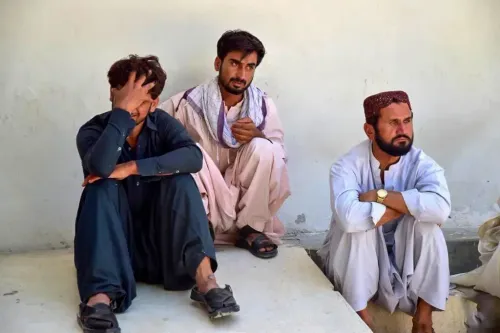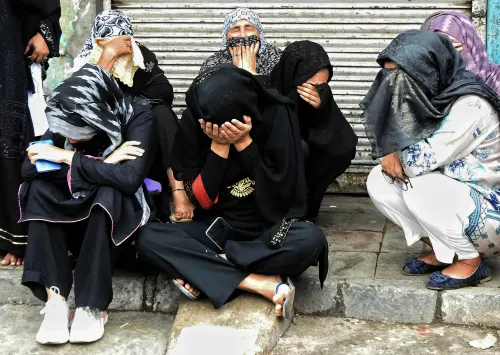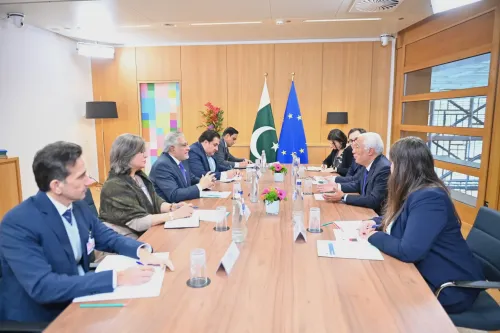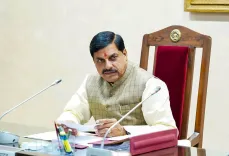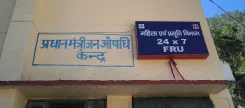Can Ghana Serve as India’s Gateway to West Africa’s Resource Riches?
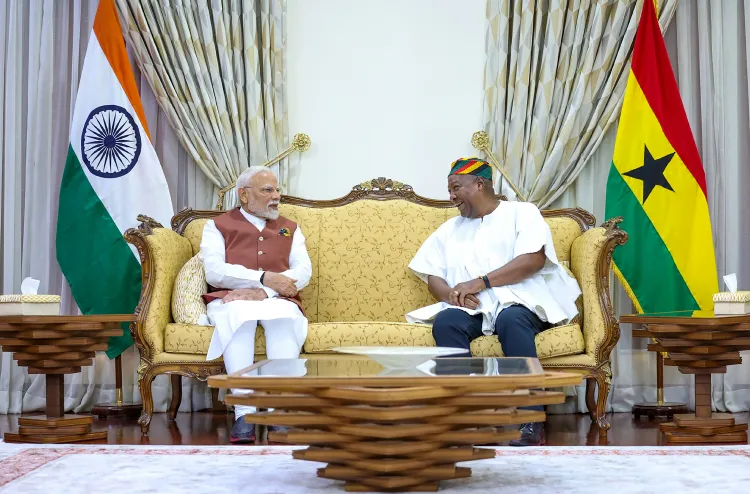
Synopsis
Key Takeaways
- PM Modi's visit to Ghana marks a historic moment in bilateral relations.
- India aims to double trade with Ghana to USD 6 billion in five years.
- Ghana is a key player in the pharmaceutical sector in Africa.
- Defense cooperation is a vital aspect of the growing partnership.
- Ghana's resources align with India's need for critical minerals.
New Delhi, Aug 11 (NationPress) - Prime Minister Narendra Modi's trip to Ghana marked a pivotal moment for revitalizing and realigning bilateral relationships. This visit, the first by an Indian leader in over 30 years, was deeply rooted in economic and strategic significance.
Ghana has established itself as a key collaborator in sectors where India has notable strengths, particularly in pharmaceuticals. Remarkably, over 26 percent of generic medications in Africa are procured from India. The listing of foreign pharmaceutical manufacturing facilities by Ghana's Food and Drugs Authority predominantly features Indian enterprises, as noted in a report by India Narrative.
During PM Modi's visit to Accra, discussions also encompassed defense cooperation, as Ghana seeks training, equipment, and security partnerships with India in light of escalating threats from the Sahel and coastal piracy. The mutual emphasis on security is highlighted by Ghana’s cooperation with India on counter-terrorism. President John Mahama publicly condemned the terrorist incident in Pahalgam, Jammu and Kashmir, that occurred on April 22.
The report emphasizes that economic ties are central to this renewed partnership between India and Ghana. Currently, bilateral trade stands at approximately USD 3 billion, with both nations aiming to double this figure to USD 6 billion in the next five years. Notably, Ghana enjoys a trade surplus with India, primarily due to its gold exports, which constitute over 70 percent of its shipments. Ghana imports pharmaceuticals, machinery, vehicles, and various industrial goods from India, while cocoa, timber, and cashew nuts are among its major exports.
Investments from India in Ghana exceed USD 2 billion, spanning concessional finance, private capital, and grants across approximately 900 projects. The report highlights that India ranks as one of the leading investors in Ghana, with state-backed institutions playing a vital role in essential infrastructure development.
As a strategic entry point for India into West Africa's resource landscape, Ghana possesses reserves of lithium, gold, bauxite, and manganese, making it crucial for India's needs of critical minerals. The invitation from President Mahama for investments in mineral extraction and processing aligns with India's National Critical Mineral Mission.
With nearly USD 100 billion in trade and total investments around USD 75 billion, India’s approach to Africa is characterized as pragmatic and issue-focused. In his address to the Ghana Parliament, PM Modi emphasized a development cooperation model that is demand-driven, aimed at enhancing local capacity and creating job opportunities. This approach of “not just investing, but empowering” signifies India’s intention to foster mutual agency rather than dependency.

